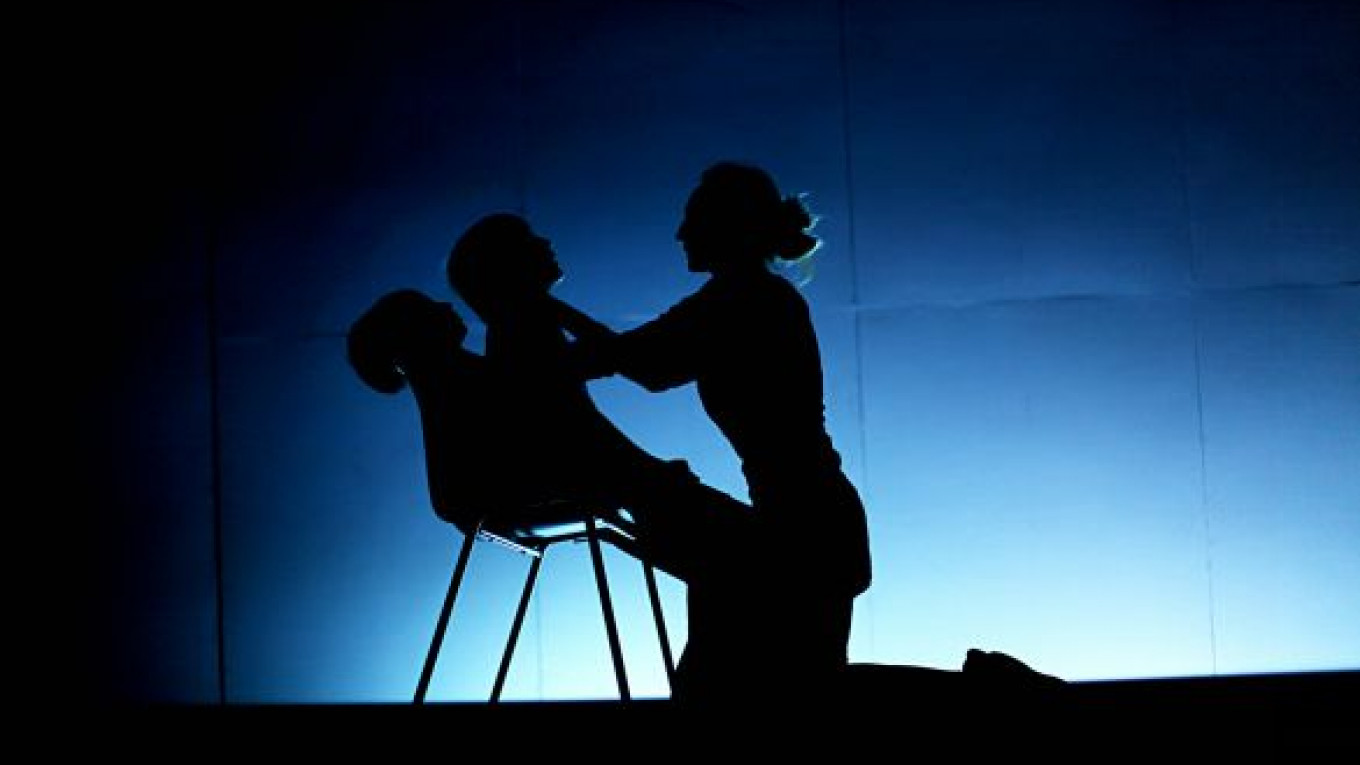What is it about Medea that has captured the imagination of Moscow's theater artists? A new production of the Greek myth at the Gogol Center is the fourth this city has seen in recent years.
An indication that each show has pursued different goals is that each has been built on different sources. Kama Ginkas employed a melange of texts, including those of Seneca, Jean Anouilh and Joseph Brodsky at the Theater Yunogo Zritelya. Mikhail Tsitrinyak staged Anouilh's play at the Vakhtangov Theater, and Vladimir Berzin, at the School of Dramatic Art, used Klim's contemporary piece inspired by the story.
At the Gogol, Vladislav Nastavshev turned his attention to the earliest source, using nothing but selected scenes drawn from Euripides' tragedy, written in 431 B.C.
Not every Greek myth makes an easy transition to the modern world. Medea, a witch, murders her children to punish her husband Jason, who left her for another woman. If you stage this as a straight story, it gets sordid very quickly. If you take it as an allegory, the whole idea of women as witches — well, that sort of gets in the way.
That said, the human experience doesn't much care about our gentle sensibilities or petty moral concerns. In fact, there is a serious problem in the modern world of mothers turning against their children to spite their husbands. Not surprisingly, it is called the Medea complex.
Nastavshev took a shrewd and interesting approach to the tale. Formally he approximates the ancient, ritualistic style of Greek acting. But if I understood what he was up to, his primary goal was to make it a supremely contemporary narrative. The result is a blunt picture of the complexities and the dangers inherent in the volatile male-female union.
There is no doubt that this Medea, as played with powerful precision by Guna Zarinya, is a witch. Her breath alone is capable of drawing people to her or sending them away, tumbling head over heels. Her shrieks, her set facial expressions and her sculptural poses suggest the supernatural.
Nastavshev, who also designed the show and wrote the music, places his actors on a high, bare platform. At either end stand chairs, virtually the only props encountered throughout. Usually, Medea sits facing an opponent, whether that be Jason (Mikhail Troinik), Jason's new father-in-law Creon (Vyacheslav Gilinov), or the children (Yelisei Bocharov and Artemy Sharov). Faced off in confrontational settings, the pairs debate and dispute their differences.
Creon, sensing danger if Jason's ex-wife is allowed to remain in the city, tries to banish her. She uses her feminine wiles and magic to convince him, tragically, to give her one more day before she leaves. That concession will bring down upon Creon's house the very disaster he sought to avoid.
Medea's audiences with Jason are stark and bracing. Physical attacks turn to passionate lovemaking in just the twist of an arm or turn of the neck. "If anyone made you help me," Jason says of their former union during which Medea made it possible for her husband obtain the Golden Fleece, "it was Eros."
Indeed, this production reads like the horrible, scandalous flameout of an intense affair. Lust is now fury, past tenderness has transformed into loathing. Medea's response to Jason breaking his oath of fidelity is matter-of-fact: "May everything perish."
Zarinya and Troinik are superb in this white-hot war of passion that takes both so far that no winners or innocents remain standing when it is over.
The lighting by Igor Kapustin is more than a creator of mood. When Medea leans over and blows on the embers of a fire a hot orange-red glow rises from behind her. When she goes to her children and, instead of embracing them, snaps their necks, the abrupt change to a chilly blue on a screen behind the stage is almost as cold as the act itself.
"Medea" is staged and acted impeccably well. A question that may remain — it did in my mind — is how fair, and thus, how honest, is this? I can't shake the notion that everybody — Jason, Creon, Euripides and Nastavshev — piled up on Medea. Yet, they suggest, she is the murderous witch.
Fair or not, this is powerful theater.
"Medea" plays Nov. 29, 30 and Dec. 1 at 8:30 p.m. on the small stage at the Gogol Center, located at 8 Ulitsa Kazakova. Metro Kurskaya. Tel. 499-262-9214. gogolcenter.com. Running time: 1 hour, 40 minutes.
Contact the author at [email protected]
A Message from The Moscow Times:
Dear readers,
We are facing unprecedented challenges. Russia's Prosecutor General's Office has designated The Moscow Times as an "undesirable" organization, criminalizing our work and putting our staff at risk of prosecution. This follows our earlier unjust labeling as a "foreign agent."
These actions are direct attempts to silence independent journalism in Russia. The authorities claim our work "discredits the decisions of the Russian leadership." We see things differently: we strive to provide accurate, unbiased reporting on Russia.
We, the journalists of The Moscow Times, refuse to be silenced. But to continue our work, we need your help.
Your support, no matter how small, makes a world of difference. If you can, please support us monthly starting from just $2. It's quick to set up, and every contribution makes a significant impact.
By supporting The Moscow Times, you're defending open, independent journalism in the face of repression. Thank you for standing with us.
Remind me later.







